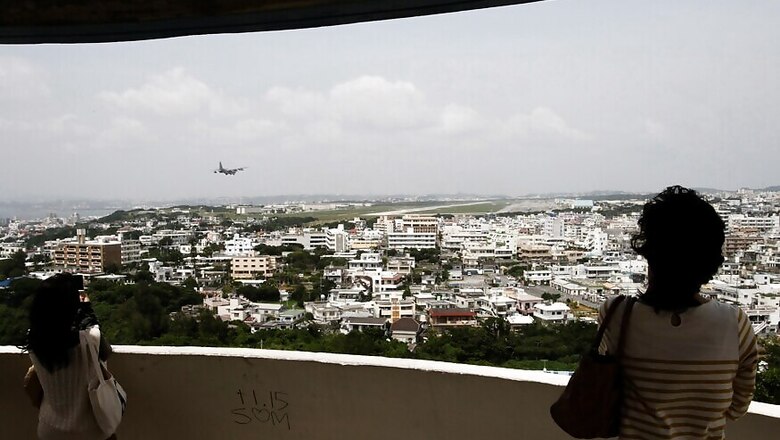
views
Washington: A Chinese fighter jet carried out an "unsafe" intercept of a US spy plane on routine patrol on Tuesday in international airspace over the East China Sea, US Pacific Command said.
The intercept involved two Chinese J-10 fighter planes and a US Air Force RC-135 reconnaissance plane, it said in a statement.
"One of the intercepting Chinese jets had an unsafe excessive rate of closure on the RC-135 aircraft. Initial assessment is that this seems to be a case of improper airmanship, as no other provocative or unsafe maneuvers occurred," Pacific Command said. Its statement did not say how close the Chinese fighter came to the US plane.
"The Department of Defence is addressing the issue with China in appropriate diplomatic and military channels," the statement said.
China's Defence Ministry said it had noted the report and was looking into it.
"Judging by the report, the US side is again deliberately hyping up the issue of the close surveillance of China by US military aircraft," it said.
"Chinese military pilots consistently carry out operations in accordance with the law and the rules, and are professional and responsible," it added, without elaborating.
In May, the Pentagon said two Chinese fighter jets flew within 50 feet (15 meters) of a US EP-3 aircraft over the South China Sea.
The Pentagon determined that the May incident violated an agreement the two governments signed in 2015.
Earlier this week, Secretary of State John Kerry said the United States would consider any Chinese establishment of an air defence zone over the South China Sea to be a "provocative and destabilising act."
US officials have expressed concern that an international court ruling expected in coming weeks on a case brought by the Philippines against China over its South China Sea claims could prompt Beijing to declare an air defence identification zone, or ADIZ, as it did over the East China Sea in 2013.
China has claimed most of the South China Sea, through which $5 trillion in shipborne trade passes every year. The Philippines, Vietnam, Malaysia, Taiwan and Brunei have overlapping claims.
Washington has accused Beijing of militarising the South China Sea after creating artificial islands. Beijing, in turn, has criticised increased US naval patrols and exercises in Asia.
During a conference in Singapore last week, Defence Secretary Ash Carter said the U.S. approach to the Asia-Pacific remained "one of commitment, strength and inclusion," but he warned China against provocative behaviour in the South China Sea.











Comments
0 comment